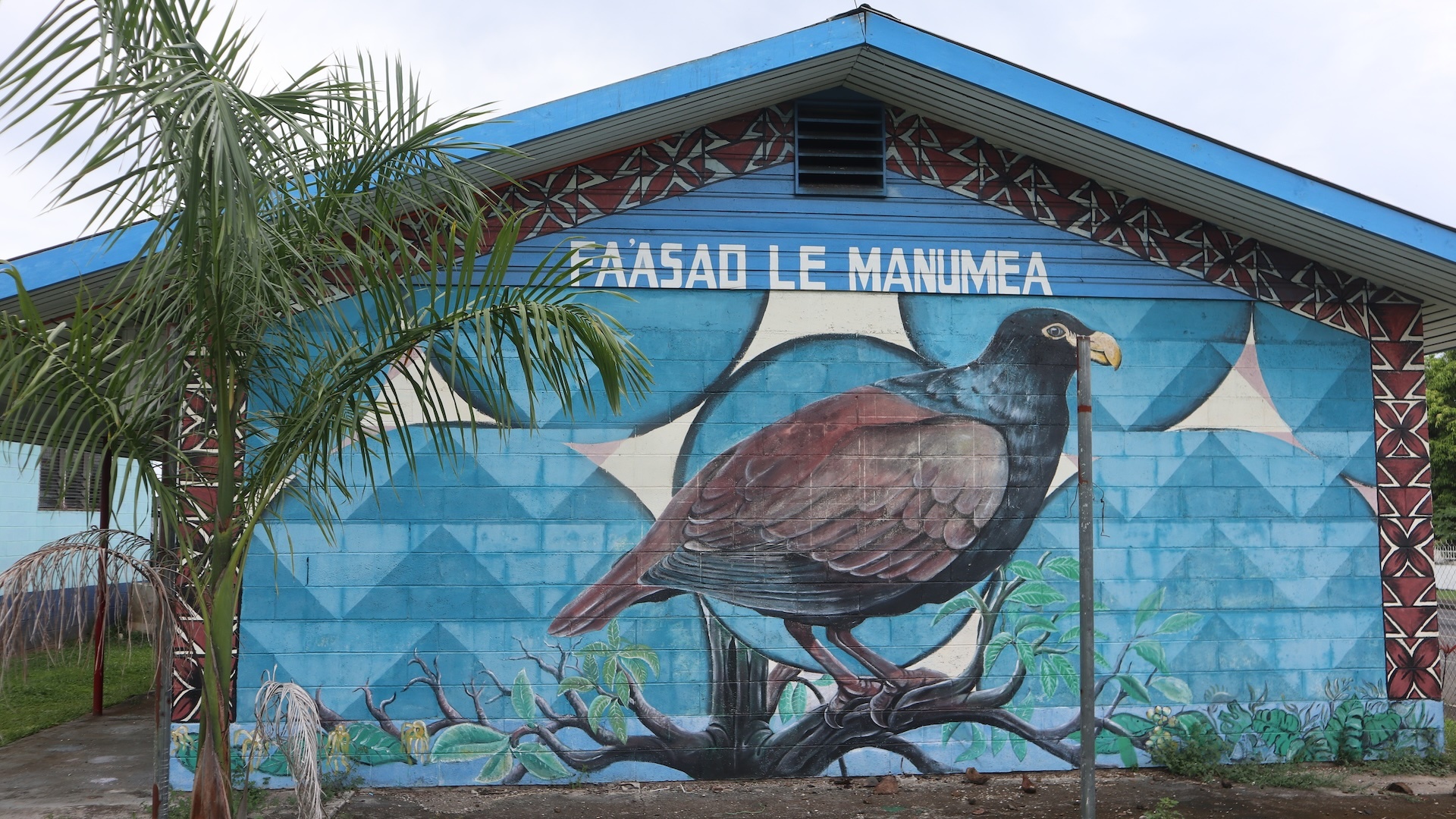
Harry Baker
Harry is a U.K.-based senior staff writer at Live Science. He studied marine biology at the University of Exeter before training to become a journalist. He covers a wide range of topics including space exploration, planetary science, space weather, climate change, animal behavior and paleontology. His recent work on the solar maximum won "best space submission" at the 2024 Aerospace Media Awards and was shortlisted in the "top scoop" category at the NCTJ Awards for Excellence in 2023. He also writes Live Science's weekly Earth from space series.
Latest articles by Harry Baker

Live Science crossword puzzle #9: A 'royal' snake that wears a hood — 14 across
By Harry Baker published
Science crossword Test your knowledge on all things science with our weekly, free crossword puzzle!
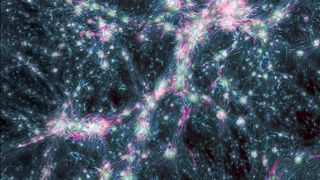
The universe's first magnetic fields were 'comparable' to the human brain — and still linger within the 'cosmic web'
By Harry Baker published
New computer simulations suggest the first magnetic fields that emerged after the Big Bang were much weaker than expected — containing the equivalent magnetic energy of a human brain.
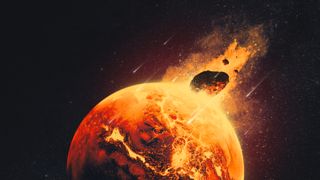
Dozens of mysterious blobs discovered inside Mars may be the remnants of 'failed planets'
By Harry Baker published
"Marsquake" data collected by NASA's InSight lander have revealed dozens of mysterious blobs within the Red Planet's mantle. The structures may have been left by powerful impacts up to 4.5 billion years ago.
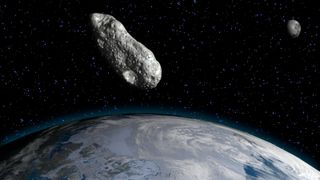
Newly discovered bus-size asteroid will zoom close past Earth today — and will not return for exactly 100 years
By Harry Baker published
Asteroid 2025 QV5, which was first spotted in late August, will make a close approach to Earth on Wednesday (Sept. 3). It will not get this near to us again until Sept. 4, 2125.
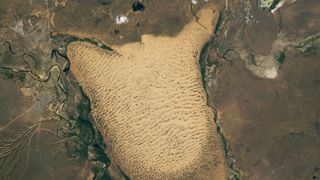
Giant sandy 'slug' crawls through floodplains in Kazakhstan, but it could soon be frozen in place
By Harry Baker published
Earth from space A 2022 astronaut photo shows a peculiar, slug-shaped dune field in the heart of the Kazakh Steppe. Signs of vegetation among the sand suggest these dunes are in the process of being fixed in place.
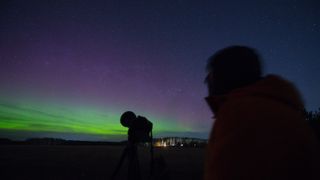
'Cannibal' solar storm could paint auroras above 18 US states this Labor Day
By Harry Baker published
Space weather experts warn that a "strong" geomagnetic storm will rock Earth on Sept. 1-2, potentially lighting the skies with vibrant auroras across large parts of North America. The disturbance is being triggered by a rare, cannibalistic ejection from the sun.

Live Science crossword puzzle #8: Lowest possible temperature in the universe — 3 down
By Harry Baker published
Science crossword Test your knowledge on all things science with our weekly, free crossword puzzle!
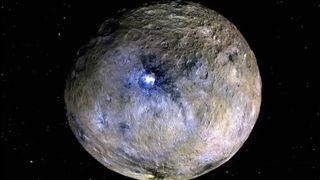
NASA reveals the dwarf planet Ceres had a hidden 'energy source' that may have sparked alien life
By Harry Baker published
New models suggest that Ceres, the asteroid belt's largest object, once had a radioactive core that could have sustained life in the dwarf planet's hidden subsurface ocean billions of years ago.

Live Science crossword puzzle #7: NASA mission that redirected an asteroid — 8 across
By Harry Baker published
Science crossword Test your knowledge on all things science with our weekly, free crossword puzzle!
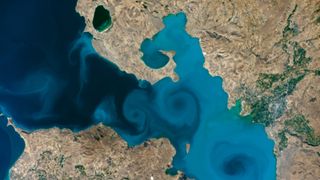
Rare milky plumes paint stunning swirls in world's largest 'soda lake'
By Harry Baker published
Earth from space A 2016 astronaut photo shows surprising plumes of milky material swirling in the waters of Turkey's Lake Van, the largest alkaline lake on Earth.
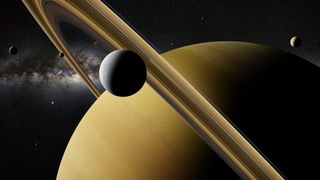
How many moons are in the solar system?
By Harry Baker last updated
The solar system has many more moons than the one we can see in the sky. But how many do we actually know about? And how many more are waiting to be discovered?
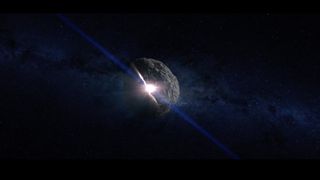
Asteroids Bennu and Ryugu may be long lost siblings, JWST hints
By Harry Baker published
New data from the James Webb telescope suggests that Bennu and Ryugu — two asteroids recently visited by sample-return missions — are both fragments of a single massive "parent".
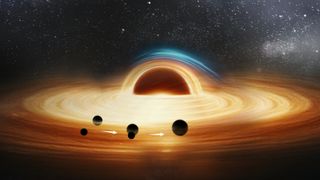
Scientists think they detected the first known triple black hole system in the universe — and then watched it die
By Harry Baker published
Chinese astronomers have spotted a hidden supermassive black hole in the background of a peculiar gravitational wave event from a black hole merger, hinting that all three singularities were locked in a never-before-seen triple system.
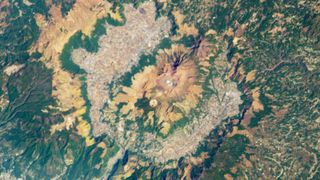
Supervolcanic 'hell' caldera in Japan is home to 17 different volcanoes
By Harry Baker published
Earth from space A 2012 astronaut photo shows the striking beauty of Japan's Aso Caldera, a "supervolcanic" structure home to more than a dozen volcanoes and "hellish" hot springs. It was formed by several major eruptions spanning more than 200,000 years.

Live Science crossword puzzle #6: Planet with a 'Great Red Spot' — 6 down
By Harry Baker published
Science crossword Test your knowledge on all things science with our weekly, free crossword puzzle!
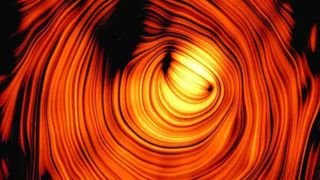
Giant, cosmic 'Eye of Sauron' snapped staring directly at us in stunning 15-year time-lapse photo
By Harry Baker published
Researchers have combined 15 years' worth of radio data to peer through the cone of a high-energy jet and unravel the magnetic mysteries of a "blazar" billions of light-years from Earth. The new findings also shed light on the origin of elusive "ghost particles."
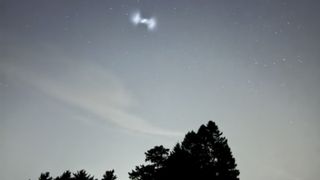
Ghostly 'spiral' photobombs Perseid meteors over several US states — and experts are unsure what caused it
By Harry Baker published
The ghostly light, which was triggered by a rocket reentry, sailed across the night sky as skywatchers across the U.S. looked up to see "shooting stars" streak across the heavens. However, experts are confused over which spacecraft is responsible.
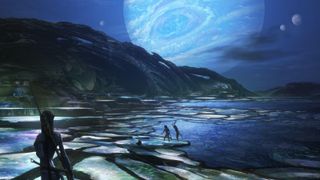
A real-life Pandora? Newfound 'disappearing' planet in our neighboring star system could have a habitable moon, just like the Avatar movies
By Harry Baker published
The recent discovery of a potential gas giant circling the nearby star Alpha Centauri A has led to speculation that it may be orbited in turn by a habitable moon that could support life, just like in the "Avatar" movies.
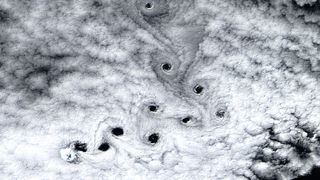
10 bizarre 'dark voids' appear in the skies over uninhabited island near Antarctica
By Harry Baker published
Earth from space A 2016 satellite photo shows nearly a dozen swirling dark spots that emerged in the clouds over Heard Island in the Indian Ocean.

Live Science crossword puzzle #5: Substance with a pH value less than 7 — 2 down
By Harry Baker published
Science crossword Test your knowledge on all things science with our weekly, free crossword puzzle!
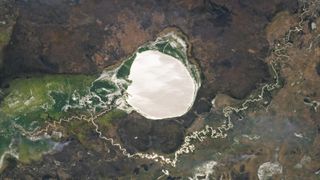
Lake-filled impact crater in Africa transforms into a giant silver 'mirror' via rare phenomenon
By Harry Baker published
Earth from space A 2024 astronaut photo shows a rare "sunglint" shining off Lake Iro and a nearby zig-zagging river in Chad. The shimmering bodies of water were likely both shaped by an ancient meteor impact.

Live Science crossword puzzle #4: The building blocks of DNA — 14 across
By Harry Baker published
Science crossword Test your knowledge on all things science with our weekly, free crossword puzzle!
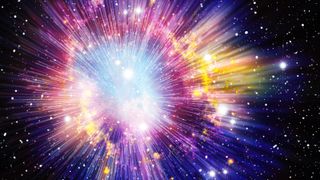
The universe may start dying in just 10 billion years, alarming new model predicts
By Harry Baker published
A surprising new paper suggests that the universe's expected lifespan is just 33 billion years, and that the cosmos will start dying in less than a third of that time. However, this is only one possible theory.
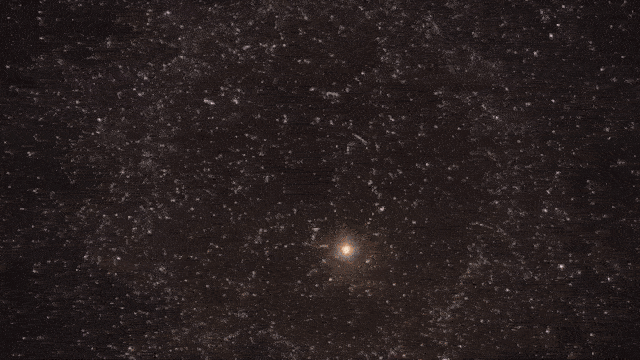
See the universe's rarest type of black hole slurp up a star in stunning animation
By Harry Baker published
Astronomers believe they have spotted an elusive intermediate-mass black hole shredding a distant star, and they have re-created the stellar murder in a stunning new animation.
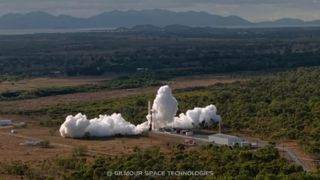
After 54-year wait, Australia's first attempt at an orbital rocket crashes 14 seconds after liftoff
By Harry Baker published
Eris-1, the first rocket fully built by an Australian company, crashed back to Earth 14 seconds after taking off from a spaceport in Queensland. It was the country's first orbital launch attempt since 1971.
Get the world’s most fascinating discoveries delivered straight to your inbox.
